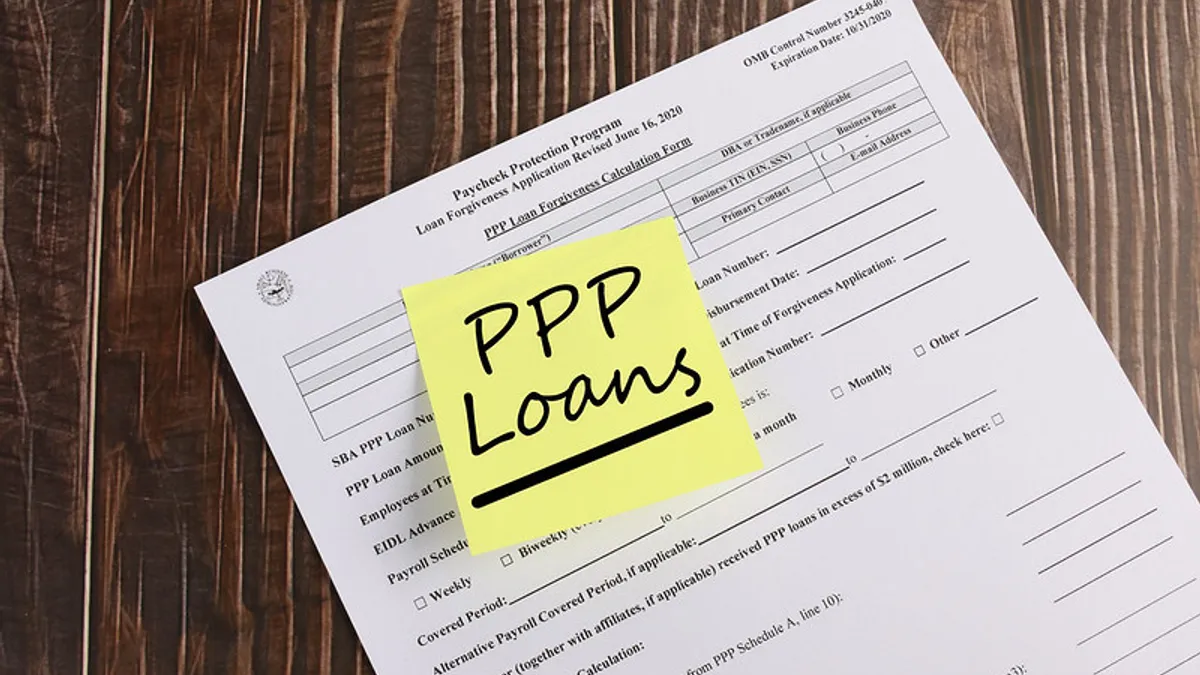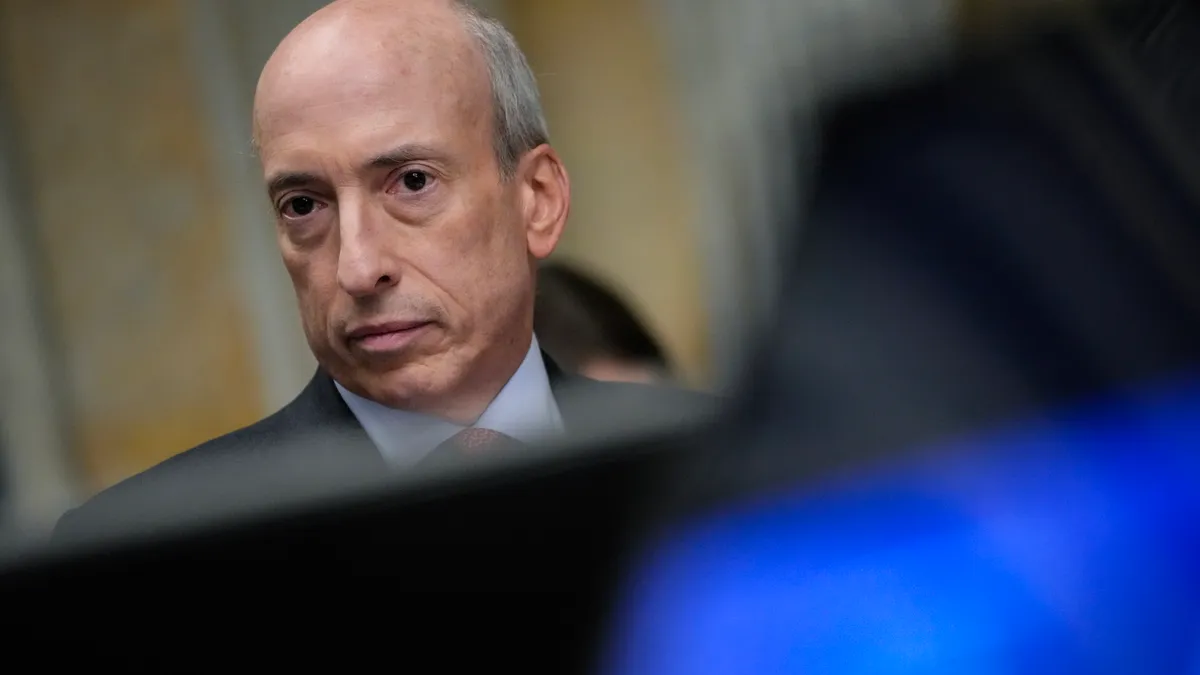Dive Brief:
-
Fintech lenders were almost five times more likely to be linked to suspicious Paycheck Protection Program (PPP) loans than traditional banks, according to a study released Tuesday by researchers at the McCombs School of Business at the University of Texas, Austin.
-
The study scoured more than 10 million PPP loans for potential red flags such as unregistered businesses, multiple businesses at one residential address, abnormally high implied compensation per employee and large inconsistencies in jobs reported with another government program.
-
Nine of the 10 lenders with the highest rates of suspicious PPP loans were fintechs, the researchers found. "While FinTech lenders likely expand PPP access, this may come at the cost of facilitating fraudulent credit," they wrote.
Dive Insight:
The Small Business Administration (SBA) backed 11.8 million loans totaling nearly $800 billion by the end of the PPP in May and has faced concerns about fraud since the early months of the program.
The U.S. House Select Subcommittee on the Coronavirus Crisis said in March that nearly $84 billion in coronavirus crisis lending under the PPP and Economic Injury Disaster Loan program may be fraudulent.
The subcommittee in May launched an investigation into fintech’s role in the PPP, saying “fintech companies and bank partners have been linked to a disproportionate number of fraudulent PPP loans.” The panel “seeks to understand the fraud controls and compliance systems” used by fintechs under the program.
Due to the urgency to provide rapid relief to borrowers amid the pandemic, "the PPP did not include robust verification requirements," wrote John Griffin, Samuel Kruger and Prateek Mahajan, authors of the study. "The lack of rigorous verification seems to have led to substantial costs to taxpayers."
Lenders' ability to collect processing fees also yielded fertile ground for lax underwriting standards, the researchers wrote.
Lenders made $36.2 billion in PPP processing fees, according to the study. Of that, $7.2 billion went to fintech firms.
"PPP lending had the potential to be a profitable business for lenders," the researchers wrote. "Up-front processing fees on a per-loan basis combined with no credit risk potentially created an incentive for lax underwriting standards, particularly for specialized PPP lenders."
"When you have a lot of money going out quickly, there’s the potential for fraud and misconduct," Griffin told Bloomberg. "There are a lot of differences across originators, which indicates that probably origination practices play a big role in potential misconduct."
Fraud indicators in PPP loans associated with fintech lenders grew with each iteration of the forgivable loan program, the researchers found.
Both fintech and traditional lenders started the PPP with suspicious loan rates of around 10%, with fintechs’ suspicious loan rates growing to 40% by the end of the program, according to the study.
The study highlighted three of the program’s largest fintech lenders — Cross River Bank, Capital Plus Financial and Harvest Small Business Finance — as lenders that exhibited high and increasing rates of both misreporting and lending volume while receiving more than $900 million in processing fees each.
Adam Seery, chief operating officer at Harvest, told Bloomberg the company "had systems in place to monitor and catch fraud through the PPP program."
Seery took issue with the report’s categorization of Harvest as a financial technology company, telling the wire service the company considers itself a "non-bank lender."
A spokesperson at New Jersey-based Cross River said the bank’s fraud detection standards "far exceeded" government requirements.
By not limiting its program to existing customers or by minimum size, the lender served almost a half-million businesses, saving "more than 1.4 million American jobs," the bank said in a statement to Bloomberg.
In response to the report, Capital Plus sent a letter to the University of Texas at Austin President Jay Hartzell, saying that the firm believes the study included proposed loans that were never made, according to Bloomberg.
Capital Plus CEO Eric Donnelly, in his letter, said the company declined more than 20% of the loans marked as approved or funded on the SBA’s website and has been working to update the information.
The university's report, which is likely to spur more pushback from fintech lenders that were involved in the program, comes as the sector is facing scrutiny from the Justice Department (DOJ) for its handling of the PPP loans.
The DOJ's civil division is examining whether Kabbage and other fintech companies miscalculated how much PPP aid borrowers were entitled to, citing confusion over how to account for payroll taxes, Reuters reported in May.
A report by ProPublica in May found that 378 PPP loans totaling $7 million made by Kabbage went to fake business entities.
Not all fintech lenders garnered high suspicious loan rates, however. Square and Intuit had misreporting rates that are "well under the average misreporting rates across all lenders," the authors of the report wrote.














